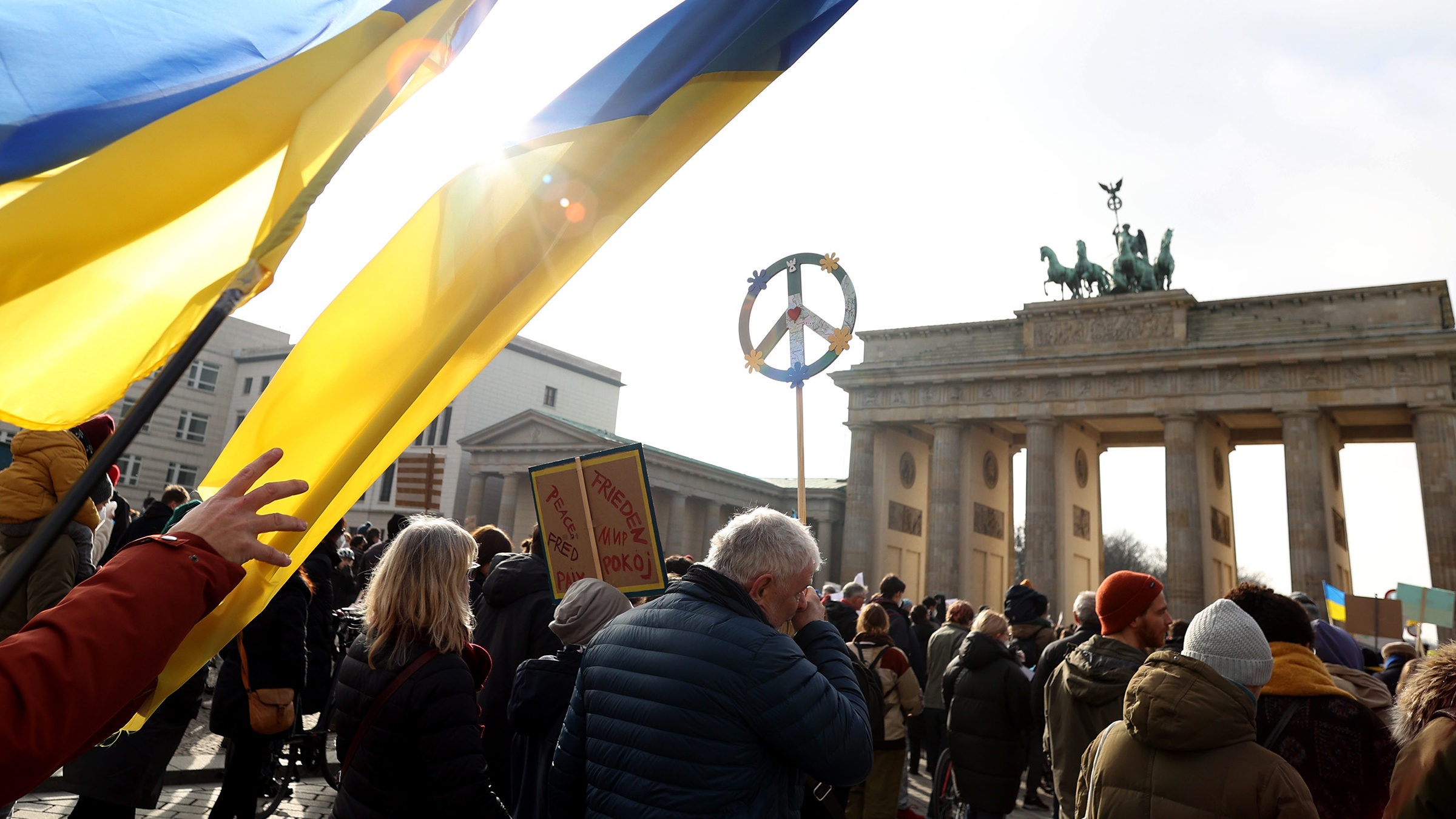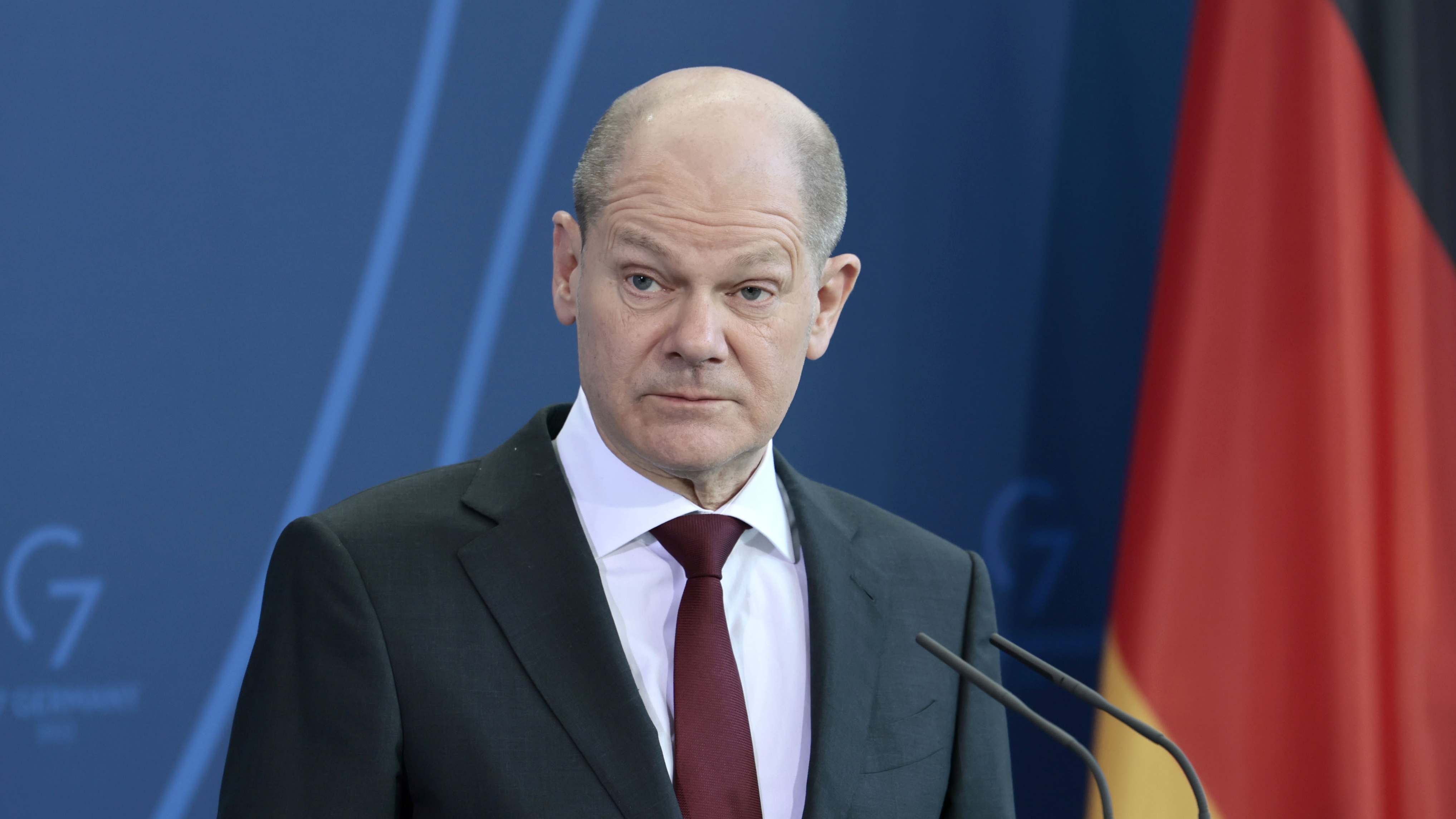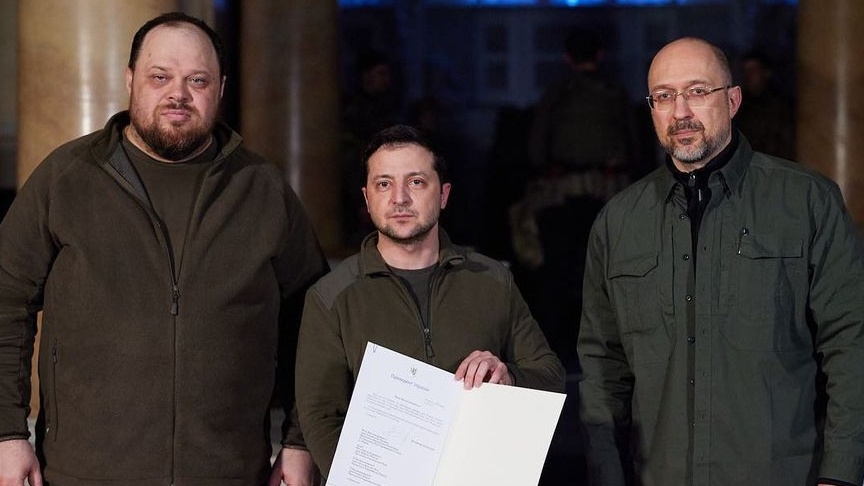Five global consequences of Russia’s Ukraine invasion
Kyiv’s allies have torn up decades of foreign policy and abandoned neutrality

A free daily email with the biggest news stories of the day – and the best features from TheWeek.com
You are now subscribed
Your newsletter sign-up was successful
In the eyes of Vladimir Putin, Russia’s invasion of Ukraine looked set be a swift operation that would boost national security and unseat a westward-looking rival government.
Instead, the attack has been hobbled by a resilient Ukrainian military response that has inflicted huge losses on Moscow’s invading force, as economic sanctions have battered Russia’s struggling economy.
In “one week of war”, history has been steered “in a new direction”, said The Washington Post. Here are five key unintended consequences of an unprovoked attack that, according to the paper, “is switching up 75 years of relations among some of the world’s most powerful and wealthy countries”.
The Week
Escape your echo chamber. Get the facts behind the news, plus analysis from multiple perspectives.

Sign up for The Week's Free Newsletters
From our morning news briefing to a weekly Good News Newsletter, get the best of The Week delivered directly to your inbox.
From our morning news briefing to a weekly Good News Newsletter, get the best of The Week delivered directly to your inbox.
1. Nato revived
In 2019, Emmanuel Macron told The Economist that global leaders were “experiencing the brain death of Nato”. But Putin’s unprovoked attack on Ukraine “has forced America and its allies to bond”, the paper said last month. “Russia has revived Nato.”
Western leaders have confirmed that the military alliance will not put boots on the ground in Ukraine or impose a no-fly zone over the besieged nation, amid fears that direct engagement with Russian forces could trigger a global conflict.
But the alliance has “mustered a three-pronged response” to the conflict, the paper reported. Initially, Nato attempted “deterrence” and “diplomacy to stay Putin’s hand”. And when that failed, it stepped up by “arming Ukraine” and imposing “unprecedented economic sanctions”, while “deploying extra forces to central and eastern Europe”.
Putin has handed Nato “something it has been searching for over the last two decades: a reason to exist”, said Der Spiegel.
A free daily email with the biggest news stories of the day – and the best features from TheWeek.com
“Many Europeans are just now coming to the realisation that the European way of life is not just protected by the EU,” the Hamburg-based news site continued, “but that this lifestyle must also be defended militarily in the face of Putin’s brutal brand of power politics.”
Nordic neutrals Finland and Sweden are now signalling interest in joining the military alliance, despite warnings from Russia’s foreign ministry that the move would trigger “serious military-political consequences”.
2. German power

While Nato was deploying “lethal aid” and punishing sanctions, Germany announced a €100 billion injection to “modernise its dilapidated armed forces”, while pledging to raise military spending above 2% of GDP ”for the first time since the end of the Cold War”, The Times reported.
In doing so, Berlin has abandoned its two-decade-long role as a “peace power”, the paper said, taking “a series of steps that add up to the boldest transformation of his country’s security doctrines in a generation”.
Described by the Atlantic Council as a “stunning foreign-policy shift”, the move saw “transatlanticists, especially those who watch Germany closely, react in collective awe”, said Rachel Rizzo, a nonresident senior fellow at the think tank’s Europe Center.
“German pacifism is a real thing, and it pulsates through German society,” she said. “And while it is unfortunate that it took a Russian invasion of Ukraine to snap Germany into reality, there’s no denying how meaningful this moment truly is.”
3. Neutral no more
Throughout the two world wars of the 20th century, Switzerland maintained a position of strategic neutrality, refusing to be drawn into the conflicts even as Nazi Germany and its allies surrounded the country on three sides.
But in what Reuters described as a “break with the past”, Switzerland has moved to “adopt all the sanctions that the EU has imposed on Russian people and companies and freeze their assets” – this from a nation that is famous for its secretive banking sector.
“We are in an extraordinary situation where extraordinary measures could be decided,” the president and foreign minister, Ignazio Cassis, told a press conference alongside his finance, defence and justice ministers. “We stand on the side of Western values.”
The government has also abandoned its “historic nonaggression policies” to “bar entry to some high-level Russians with Swiss connections and close Swiss airspace to Russian flights”, NBC News reported, marking the birth of “a new Europe” united against Russia.
4. EU expansion

Ukrainian president Volodymyr Zelenskyy “put the European Union on the spot on Monday”, Politico reported, “imploring the bloc to make good on expressions of support by granting his country immediate EU membership as it fights Russia’s invasion”.
On his Telegram channel, Zelenskyy said: “We ask the European Union for Ukraine’s immediate accession via a new special procedure. Our goal is to be together with all Europeans and, most importantly, to be on an equal footing.”
And Russia’s invasion and attacks have not only dragged Ukraine closer to its Western allies. Georgia’s ruling party said yesterday that it too would “immediately” put forward an application to join the EU.
Irakli Kobakhidze, chair of the ruling Georgian Dream party, urged the EU during a press conference “to review our application in an urgent manner and to make the decision to grant Georgia the status of an EU membership candidate”.
The former Soviet nation “had initially planned to apply in 2014 but reversed its stance amid pressure from the opposition and demonstrators”, Deutsche Welle reported.
5. Energy revolution
The invasion has “exposed vulnerabilities in European energy supplies”, The New York Times reported, prompting urgent calls from across the EU for the continent to pursue “longer-term independence”.
“We cannot let any third country destabilise our energy markets or influence our energy choices”, European Commissioner for Energy Kadri Simson told reporters earlier this week, adding that the attack has “made our vulnerability painfully clear”.
Russia provides almost 40% of the EU’s natural gas and more than 25% of its crude oil. But the outbreak of war means the bloc is “expected to unveil a new energy strategy next week to reduce its dependence on Russian gas supplies”, New Scientist said.
The plan is “the latest of a string of repercussions for the European energy landscape” that have been triggered by Putin’s aggression.
The invasion also caused Germany to halt the approval of the controversial Nord Stream 2 gas pipeline, a decision that caused the Swiss company behind the project to fire all 106 of its staff after also being targeted by US sanctions.